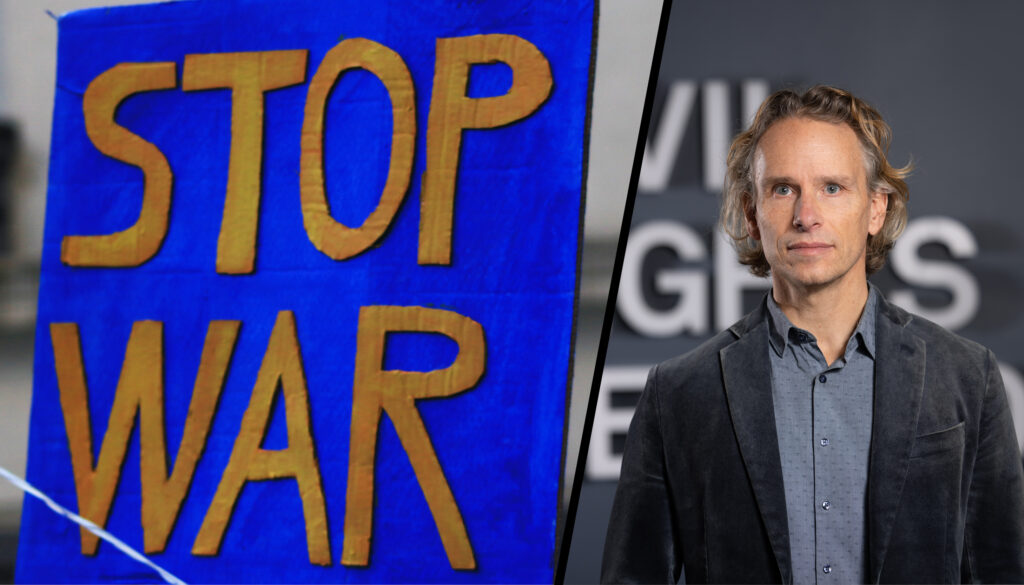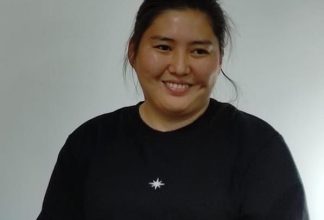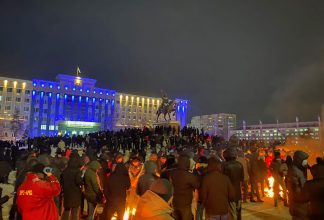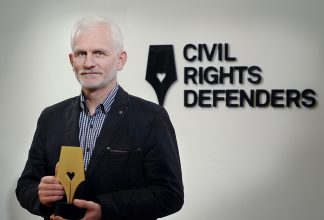How Those Responsible for War Crimes Can Be Held Accountable

Right now, many ask themselves if someone will be held accountable for what is happening in Ukraine. Civil Rights Defenders has, for a long time, worked to hold to account those responsible for war crimes and other core international crimes. Our Legal Director John Stauffer explains how perpetrators can be brought to justice.
What are war crimes?
“Even in times of war, there are laws. The rules of war, or international humanitarian law, are laws that set out what can and cannot be done during an armed conflict. Breaking the laws means committing a war crime. Torture, attacks on civilians or civilian buildings, and sexual violence are examples of war crimes. Intentionally attacking civilian targets is a war crime but incidental harm to civilians when attacking military targets can also be a war crime. Hitting a civilian building or civilian casualties are, however, not by definition war crimes. Crimes against humanity and genocide are also crimes that can be applicable in wars.”
Has Russia committed war crimes in Ukraine?
“There are images and reports from the country that show that war crimes have been committed. For example images of dead civilians and of schools and hospitals that have been attacked. We have also seen reports of the use of cluster bombs, bombs that spread over a large area.”
Can those responsible for the crimes in Ukraine be brought to justice?
“When it comes to war crimes, it is individuals, not states, that can be brought to justice. That means that those responsible for the war in Ukraine can be held accountable. There are different legal measures to take, and we will probably see prosecutions and trials in different courts in the coming future. The International Criminal Court (ICC) is one of several courts that currently investigates war crimes and other violations of international law in Ukraine, in order to hold those responsible accountable. In the ICC those ultimately responsible, highest up in the hierarchy, are brought to justice.
Also, using the principle of universal jurisdiction, national courts in several European countries can open investigations and pursue prosecutions to hold those responsible accountable. Sweden is one of those countries.
According to Swedish law, national authorities can investigate and prosecute violations of international law that have taken place in another country, without there being a link to Sweden. That means that crimes against humanity, genocide, and war crimes can be investigated and prosecuted in Sweden, regardless of where they have been committed or the perpetrator’s or the victim’s nationality.
Also, Ukraine’s public prosecutor has a war crime unit. They are currently investigating a large number of crimes that Ukranian courts might bring to trial in the future.
A special international tribunal to bring crimes committed in Ukraine to justice, might also be created.”
Do you think that those responsible will be held accountable?
“It will probably be possible to collect evidence that enables prosecution of people. However, it is always difficult to hold high-ranking officials accountable while they are in power. But there are examples, such as in former Yugoslavia, where even those ultimately responsible were held accountable after they had lost power.
In practice, it is a challenge to detain those responsible in order to bring them to justice. However, international arrest warrants can be issued, which means that suspects can be detained if they travel.
Even if it takes time, the efforts to hold those responsible to account must continue. It is important to prevent impunity and to achieve some sort of redress for the victims and their families. Justice is possible but it takes time.”
What does Civil Rights Defenders do when it comes to war crimes and documentation?
“Evidence is crucial when it comes to these crimes. What is most important now is to collect information that later can be shared with others, for example the International Criminal Court or national courts. Civil society plays a key role when it comes to documenting violations of international law. Civil Rights Defenders currently works with other organisations to collect important information, such as photographs, videos, and testimonies that can be used as evidence in future trials.
We support these organisations financially, but also through legal advice. For example, we can give guidance on how to collect information, what sort of information that is needed, and how to ensure evidentiary value. The work also includes preparing concrete cases where war crimes and perpetrators can be identified.”
Read more
Civil Rights Defenders has previously submitted cases to the Swedish police in order to hold perpetrators to account for violations of international law in Syria. Read more about our work here.
Support our work
The crimes committed must be documented so that those responsible can be held accountable. Civil Rights Defenders works together with organisations in Ukraine to collect evidence such as photos, videos, and personal testimonies that can eventually be used in court. We support these organisations both financially and by providing guidance on how to collect and document the information.


